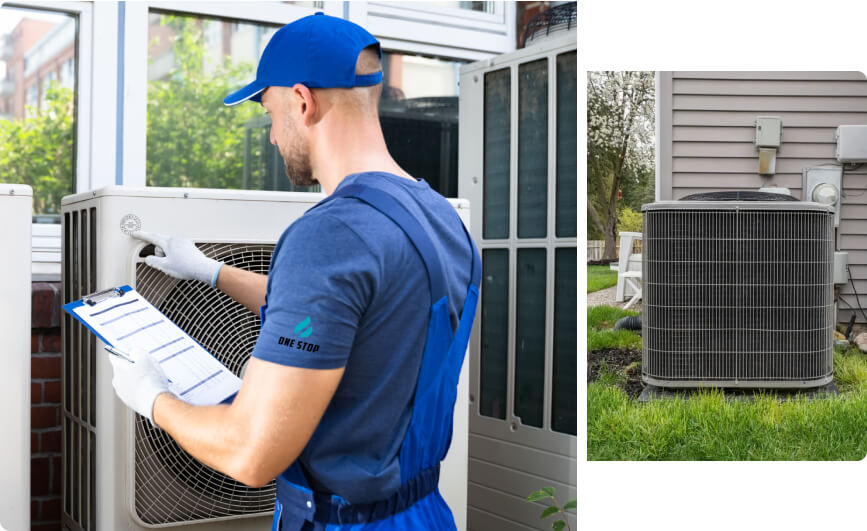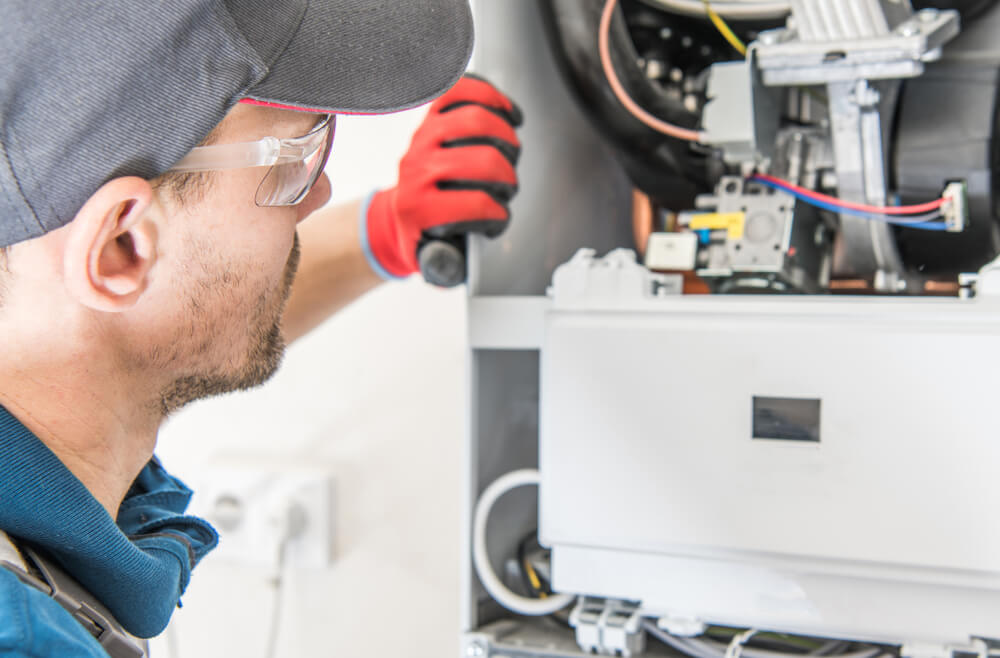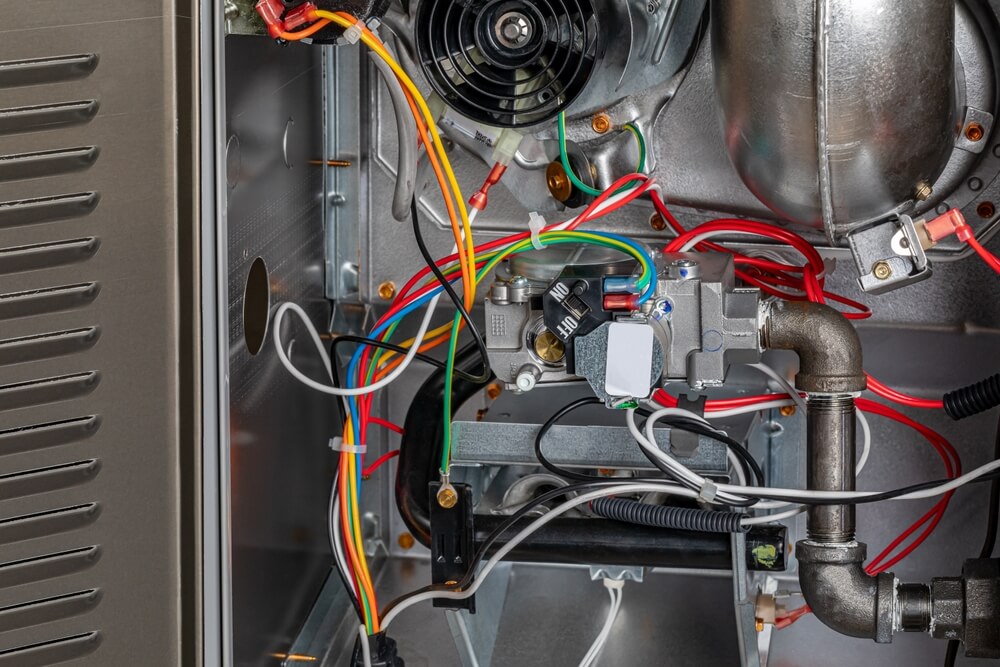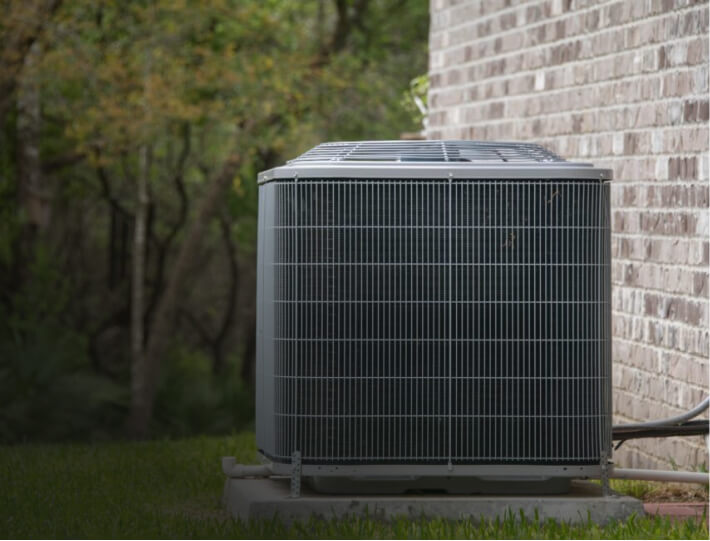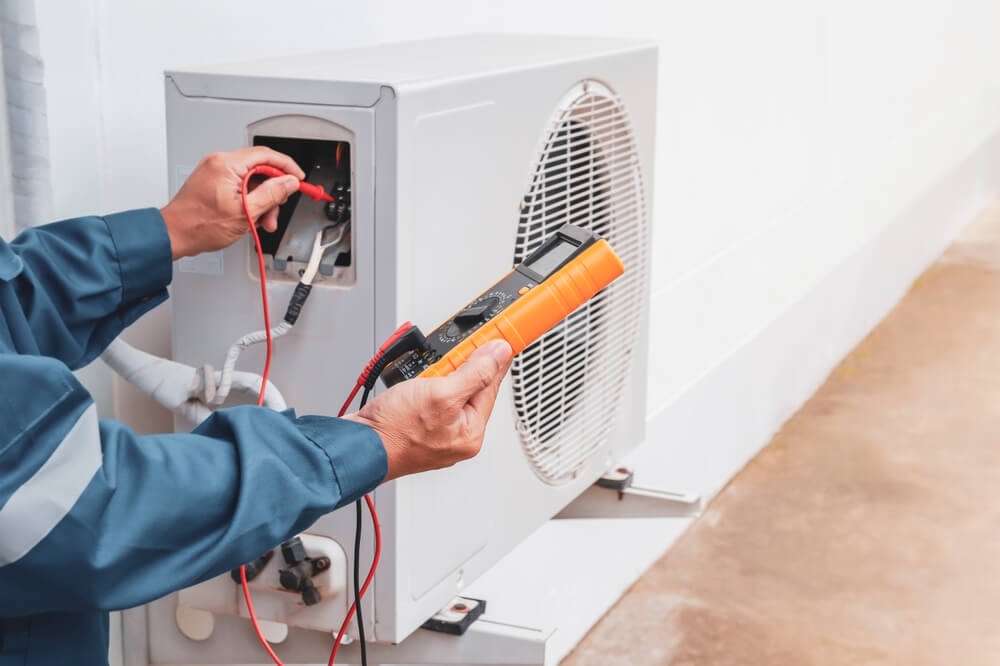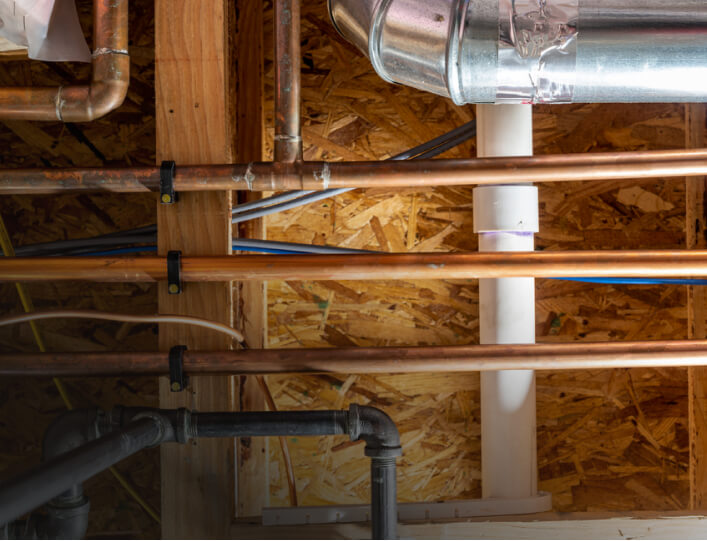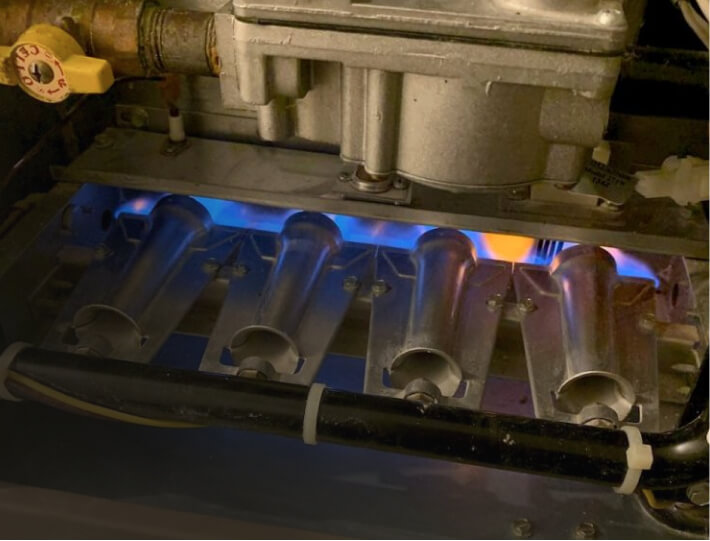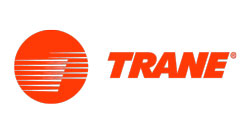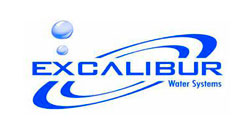Same / Next Day
Service 24/7
Rating 5/5
Google Reviews
Licensed TSSA
Technicians
Served Over 1000
Local Residents
Get Your Free
Estimate Today
Great Prices
Guaranteed

Reliable Services For All Your Heating & Cooling Needs
When it comes to reliable HVAC services that prioritize your schedule, One Stop HVAC is your number one service provider in Calgary and the Calgary Metropolitan Region.
Our qualified technicians ensure the very best service, ensuring that your heating and cooling systems are operating efficiently and safety all year round.
We go the extra mile to work around your schedule and ensure minimal disruptions to your daily life.
Heating and Cooling Services
HVAC Services For Every Season
When it comes to finding a dependable HVAC company that puts you and your schedule first, look no further than One Stop HVAC! Our commitment is showcased through our team of highly qualified technicians with years of industry experience. Rest assured, they will deliver an exceptional service that will surpass your expectations.
Whether you require an emergency repair, routine maintenance, or installation services, we will collaborate closely with you to ensure your Calgary heating and cooling systems operate efficiently and safely throughout the year.

Our Service Area
Top Rated Service
Grab Your Exclusive Coupon Now
ONLY $119
FURNACE MAINTENANCE
Maintain Your Furnace
$25 OFF
FURNACE REPAIR
Limited Time Offer!
10% OFF
SENIORS DISCOUNT
We offer seniors 10% off on all labour.
Call us now to get Free Quote!

Most Trusted HVAC Company in Calgary & The CMR
At One Stop HVAC, we recognize that your heating and cooling systems may require assistance outside of regular working hours. That’s why we proudly offer extended operating, 7 days a week, 24 hours a day, to accommodate you and your busy schedule.
With years of experience our technicians possess extensive knowledge and expertise, allowing them to provide complex on-site repairs to swiftly restore your HVAC systems to optimal functionality.
Don’t just take our word for it… we let our satisfied customers do the talking.



Our Processes
01. WHOLE-HOME ASSESSMENT
Our technicians use the latest diagnostic equipment to ensure transparent suggestions, ensuring maximum energy efficiently in your home.
02. CREATE HOME PLAN
We believe in being transparent with our clients, taking a collaborative approach to create HVAC plans that cater individual requirements.
03. ENHANCE YOUR PERFORMANCE
Whether it’s a minor repair or the installation of a new appliance, our goal is to help you achieve long-term cost-effective results.
04. TEST AND MEASURE
Before we finish we conduct finial testing to ensure your appliance is operating to the best of it’s ability.
Stay Cozy With Our Furnace Services In Calgary & The CMR
We specialize in professional furnace repair, maintenance and furnace installation services that ensure your home remains cozy all year long.
How can you tell if your furnace requires attention? Look out for these signs:
- Increased energy bills
- Uneven heating throughout your home
- Decreased air quality, potentially through dust or soot in the air
- Your furnace keeps turning on and off without providing effective warmth
At One Stop HVAC, our commitment to providing exceptional service begins with a comprehensive diagnostic test. This meticulous approach ensures that we offer professional and transparent solutions tailored to your specific needs.
